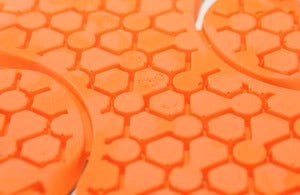
The UK Ministry of Defence’s (MoD) Defence Science and Technology Laboratory (Dstl) has invited proposals from industry partners for development of materials and technologies with unique properties to enhance the British armed forces’ future operational capabilities.
Launched by the Dstl’s Materials and Structures Science and Technology Centre (MAST STC), the Centre for Defence Enterprise (CDE) scheme wants suppliers to conduct research and develop smart materials that offer significant improvements against emerging requirements and threats compared with existing capabilities.
MAST STC technical lead Professor Ian Youngs said research on smart materials offers several opportunities for integration of added functionality into future military equipment concepts.
"It is vital for the success of MoD’s materials and structures technology programme to solicit high-quality and innovative studies through CDE in order to provide technical challenges to the core research programme," Youngs added.
Research areas include smart coatings that provide evidence for maintenance or repair of equipment, smart textiles, and smart packaging, which will be capable of delivering an improved understanding of the military logistic supply chain.
Also sought by the MAST STC include advanced manufacturing, modelling techniques, intelligent systems offering future potential for defence and security applications, as well as adaptive structures for deliver significant benefits to a number of military areas, including air platforms.
How well do you really know your competitors?
Access the most comprehensive Company Profiles on the market, powered by GlobalData. Save hours of research. Gain competitive edge.

Thank you!
Your download email will arrive shortly
Not ready to buy yet? Download a free sample
We are confident about the unique quality of our Company Profiles. However, we want you to make the most beneficial decision for your business, so we offer a free sample that you can download by submitting the below form
By GlobalDataWhile conducting research, the potential suppliers are requested to consider the broad spectrum of platform types, structures, equipment and devices operated by the military, which includes futuristic nano-unmanned vehicles, large ships, land vehicles and aircraft.
The structures range from tents to large deployable operating bases, as well as headquarters, while the equipment types includes radios, weapons and clothing.
Image: The D3o material is commonly used for protection as it hardens on impact. Photo: ©Crown Copyright.




